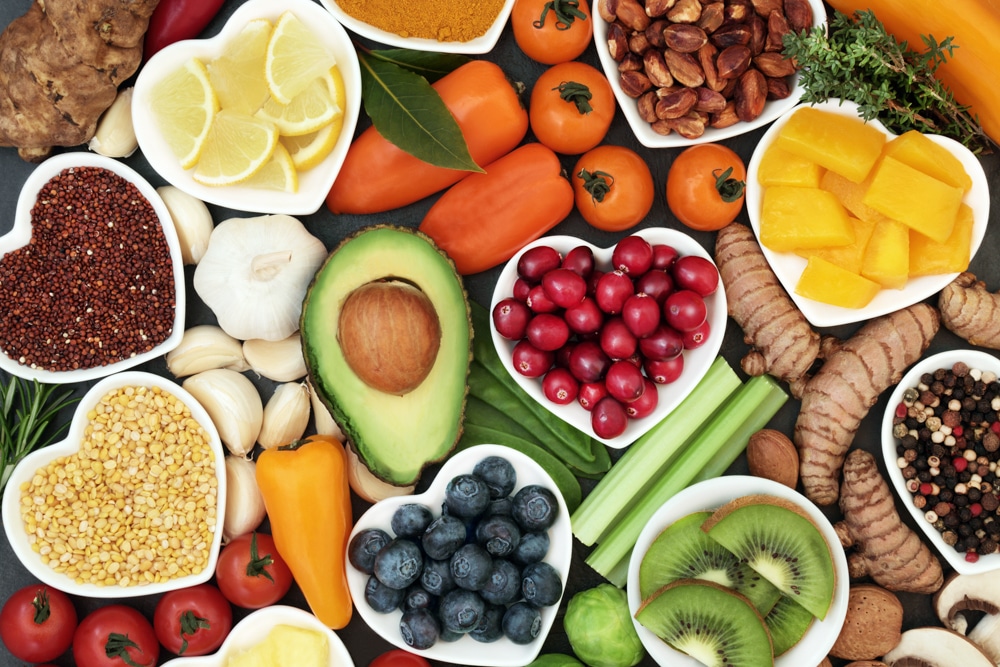
Our lives can get caught in a loop and recovering takes a mindful watch on what’s going on inside us…
COVID-19 and all its variants have become an uncomfortable part of life. Just as things seem to settle down and we get back to living normally, another variant comes along and the disruption begins again. This time of massive upheaval has spurred us to reevaluate how we do things as a community and a country. For instance, we’ve realized that having food, medical supplies, and essential goods come from halfway around the globe is risky, and there has been a surge in local production as a result. Producing essential goods in our local communities fortifies us, making us more resilient and self-reliant.
But beyond issues with our supply chain, there are grand patterns in daily life that erode our well-being, from what we fill our minds with to how we spend our days. While most of us are more aware than ever of how important diet and exercise are to our overall health, there are several other factors that also play a major role. Tending to the issues that follow below will help you be more resilient in the face of an ongoing pandemic and all the disruptions that come with it.
Fear
Fear, particularly when prolonged, damages the immune system, making us more susceptible to illness. Fear is a natural human emotion and a primary survival mechanism. It’s a reaction to a perceived threat. Fear serves an essential function in the moment by keeping us away from danger, but living in a state of fear for weeks, months—or years—has consequences. In Eastern medicine, fear corresponds to the adrenals, which are the source of our body’s constitutional energy, similar to our genetic makeup in Western science. The adrenals are also responsible for our willpower: our ability to focus on goals and pursue them with single-minded action. Prolonged fear damages this energy and can cause us to lose focus, our sense of direction, and the desire to move forward in life. Therefore, living in a perpetual state of fear can also be a precursor to many types of mental depression.
Chronic fear impairs the immune system, affects memory, interrupts brain processing abilities, and contributes to fatigue, clinical depression, and PTSD (post-traumatic stress disorder).
Limiting Negativity
Sometimes it’s difficult to see the positive when we seem to be drowning in bad news. The information we allow into our psyche profoundly affects our mental health. One of the ways we can begin to heal is to be aware of what we’re letting in.
If you’re feeling overwhelmed, consider taking a break from the news. Put your social media accounts on pause and go outside. It’s easy to get stuck in a loop of negativity when it’s being pushed on us from every direction. If you need a boost in morale, call a trusted friend or, even better, have coffee with them. Read a book with your children or take your dog for a walk.
When going outside, make eye contact and smile. People are usually on autopilot, their heads down, lost in thought. When we smile and make eye contact, others are often surprised. Usually we can get a smile in return, and the gesture gives us both a boost. We each get to enjoy a tiny boost of endorphins (the feel-good hormones). It’s a small act of positivity, but it can be contagious.
Fostering Positive Relationships
Scientific studies have demonstrated that the number and quality of healthy relationships in our lives keep us healthy, happy, and living longer. The pandemic has made maintaining those connections more challenging, but they’re vital for our health. Focusing on nurturing, loving, supportive relationships strengthens us and helps us be more resilient when faced with adversity. You’ll recognize positive, loving relationships because they’re the ones that make you feel joyful, replenished, and grateful instead of depleted and depressed. These healthy relationships are the ones you want to nourish, especially now.
Becoming More Self-Sufficient
Many of us have felt the impact of the pandemic as a loss in different aspects of life. This loss has manifested in different ways, such as losing contact with loved ones, losing the ability to move about freely, and losing a sense of safety and security due to uncertainty about the future.
One way to combat this feeling is to become more self-sufficient. Self-reliance brings us back into control of our lives.
Eating, Sleeping, and Exercising
Eating well, exercising, and getting enough sleep are the fundamentals when it comes to keeping our bodies resilient. When life becomes unpredictable, as it has throughout the pandemic, getting back to basics is an excellent way to stay strong. Eating a healthy, varied diet of fresh, natural foods, going outside every day to move your body, and getting restful, rejuvenating sleep will help us cope with whatever life throws at us. With a fit body, satiated belly, and good night’s sleep, there’s little you can’t accomplish.
Processing Your Emotions
In Eastern medicine, attending to our emotions is considered vital to our overall health. Emotions are a normal part of the human experience, but in the Eastern medicine view, unacknowledged or unexpressed emotions can make us sick. Because of the all-encompassing nature of the pandemic and how it has affected every part of life, it can be hard to know where to start when it comes to dealing with our feelings. Emotional intelligence—the ability to perceive, control, and evaluate our emotions—is an important skill and something we all need in order to navigate the complex world of feelings. This need is amplified during the current upheaval. That said, try to keep it simple. Make time every day to acknowledge how you feel, and then allow yourself to feel it completely. This practice gives your feelings a place to go—simply by allowing them to be felt. Once felt, they can dissipate because they have served their purpose and no longer need to take up space.
A Shared Journey
The pandemic has been onerous. Our whole world changed almost overnight, and nothing has been the same since. The good thing is that you’re not alone. We’re all going through it together. Our unified experience is easy to forget sometimes because we’ve been so isolated. You’re not alone. Be kind to yourself. Take care of yourself and the people around you. There is love, goodness, and kindness in the world. It’s all around you. Acknowledge and process what you’re feeling and find joy wherever you can. We will all get through this, and the first step is to begin healing.
Adapted from Emma Suttie, L.A. Times





